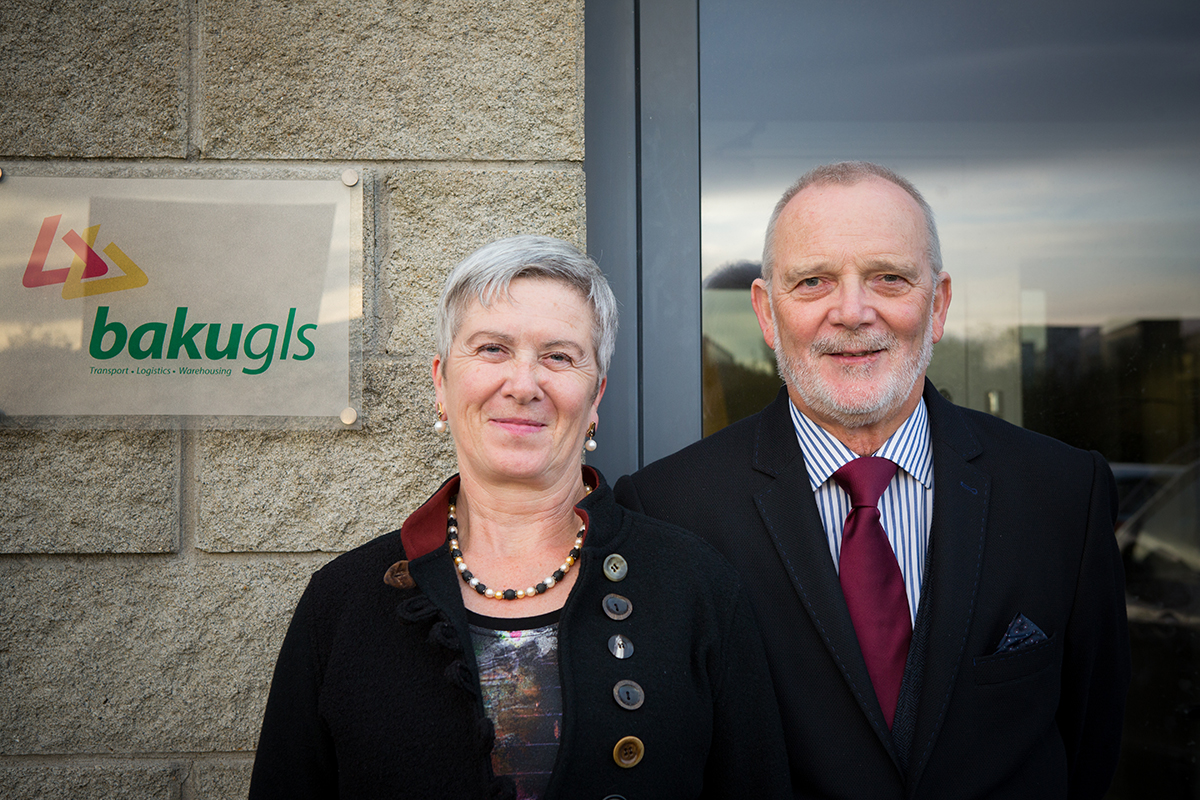
The Baku GLS warehouse in Rosslare is now a Temporary Storage Facility (TSF). As a TSF, we can now hold non-EU goods, not yet cleared by customs, for up to 90 days.
We believe that TSFs will play an especially important role in the Irish supply chain as soon as the UK leaves the EU.
Find out more about Temporary Storage and how it works in this week’s article.
What is Temporary Storage?
Temporary Storage provides Irish businesses that buy goods from non-EU countries with an alternative to ‘up-front’ customs processing. Under normal circumstances, when non-EU goods are imported to Ireland, those goods need to be processed by customs before they can enter the supply chain. This means that, by default, transport companies carrying non-EU goods have to submit their trailers to customs authorities upon arrival at a port or border crossing. Any taxes due on the goods they’re carrying have to be paid in full before the truck can continue on its journey.
With Temporary Storage, non-EU goods can pass through the port, then get unloaded and stored in a bonded warehouse for up to 90 days before eventually getting processed by Irish customs authorities. By effectively hitting the ‘pause’ button on customs procedures for a few weeks, businesses that use TSFs are able to better manage their cash flow and keep the supply chain moving smoothly.
How does Temporary Storage work?
To avail of Temporary Storage you need three things: a TSF, an ACR and an ACE. First, an ACR (Authorised Consignor — effectively a customs-approved ‘sender’) ships the goods to an ACE (an Authorised Consignee, or a customs-approved recipient). The ACR doesn’t have to report the goods to the customs office in the country that the goods are leaving, and the ACE doesn’t have to report the goods to the customs office on arrival. Instead, the shipment can move straight to a TSF (Temporary Storage Facility), where goods are logged, stored and monitored until it’s their turn to be formally processed by Customs.
Temporary Storage is, by definition, not a customs procedure in its own right – it’s a way of postponing a customs procedure for up to 90 days. Temporary Storage always ends one of three ways:
- Goods are processed by Customs (e.g. customs duties are paid, goods continue on their journey)
- Goods are re-exported (e.g. sent back out of Ireland without interference)
- Goods are destroyed (e.g. duties aren’t paid and goods aren’t sent out of Ireland)
What is a Temporary Storage Facility?
A Temporary Storage Facility (TSF) is the physical premises where imported goods are kept while they await customs processing. In many other countries, a TSF is referred to as a bonded warehouse. It’s a secure warehouse where a bond (guarantee) has been paid to cover the customs liabilities of the goods being stored under its roof.
To qualify as a TSF, you need to go through a rigorous application process whereby you demonstrate that your premises is secure, that your stock control and accounting systems are impeccable and that your staff are responsible and trustworthy. You also need to pay a customs guarantee large enough cover the value of the tax due on any goods you’re planning to hold. Once your warehouse has been granted TSF status, you then need to allow Revenue officials to enter your premises for regular inspections. If, at any point in the future, the inspectors decide that you have fallen short of the necessary standards, then your TSF status can be immediately suspended or revoked.
Why use a Temporary Storage Facility?
There is a lot of extra paperwork and added costs involved in setting up a Temporary Storage Facility (TSF), but as far as we’re concerned, the benefits to our customers are clear. Businesses that choose to utilise TSFs as part of their supply chain can improve cash flow, streamline customs procedures and distribute goods more efficiently from non-EU countries, which will become especially important after Brexit.
Temporary Storage Facility users can…
Avoid customs queues
If Brexit causes major customs delays at Irish ports, our Temporary Storage Facilities will ensure that we can quickly move goods off the tarmac at Rosslare, and into the supply chain, as efficiently as possible. The risk of TSF-bound trucks having to queue for customs inspections at the port is greatly reduced.
Improve cash flow
By moving goods straight into a TSF, our customers don’t have to pay the relevant customs duties up-front. 3 months worth of stock can be sent to our bonded warehouse, and our clients can pay the duty on those goods as-and-when the goods enter circulation.
Distribute stock effectively
If, after Brexit, we start to experience delays and cancellations to sea crossings and Ro-Ro ferry schedules, our customers will need a cost-effective way to stockpile UK-sourced goods on the island of Ireland. By using our Temporary Storage Facility, our clients will be able to keep up to 90 days’ worth of goods in Rosslare, ready for distribution by road across the country at a moment’s notice.
Find out more about Baku’s Temporary Storage Facility
Businesses that avail of Temporary Storage can save money, move goods faster and improve cash flow …especially after the UK leaves the EU. If you would like to learn more about Temporary Storage and how it can help your business, give us a call on +353 53 9161786 or fill in our contact form. You can also learn more about Temporary Storage Facilities on the revenue.ie website.













